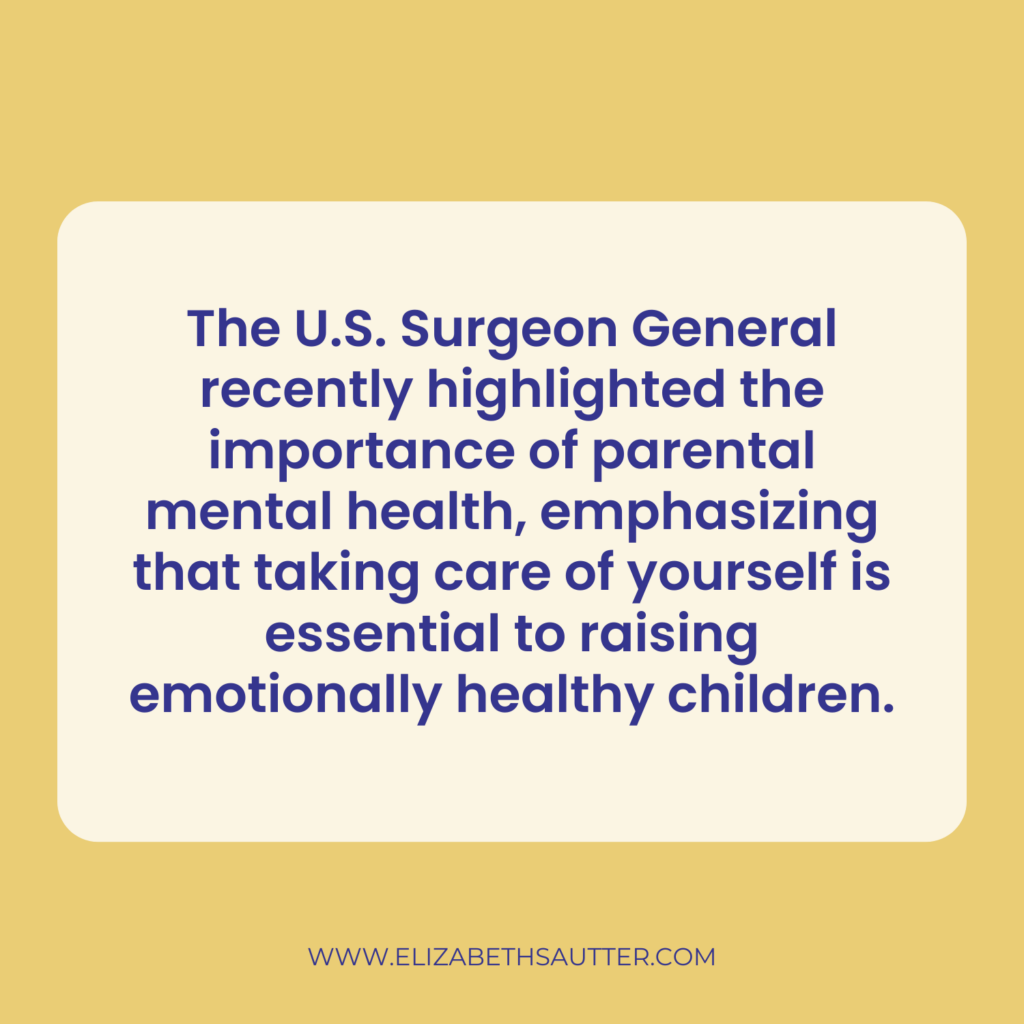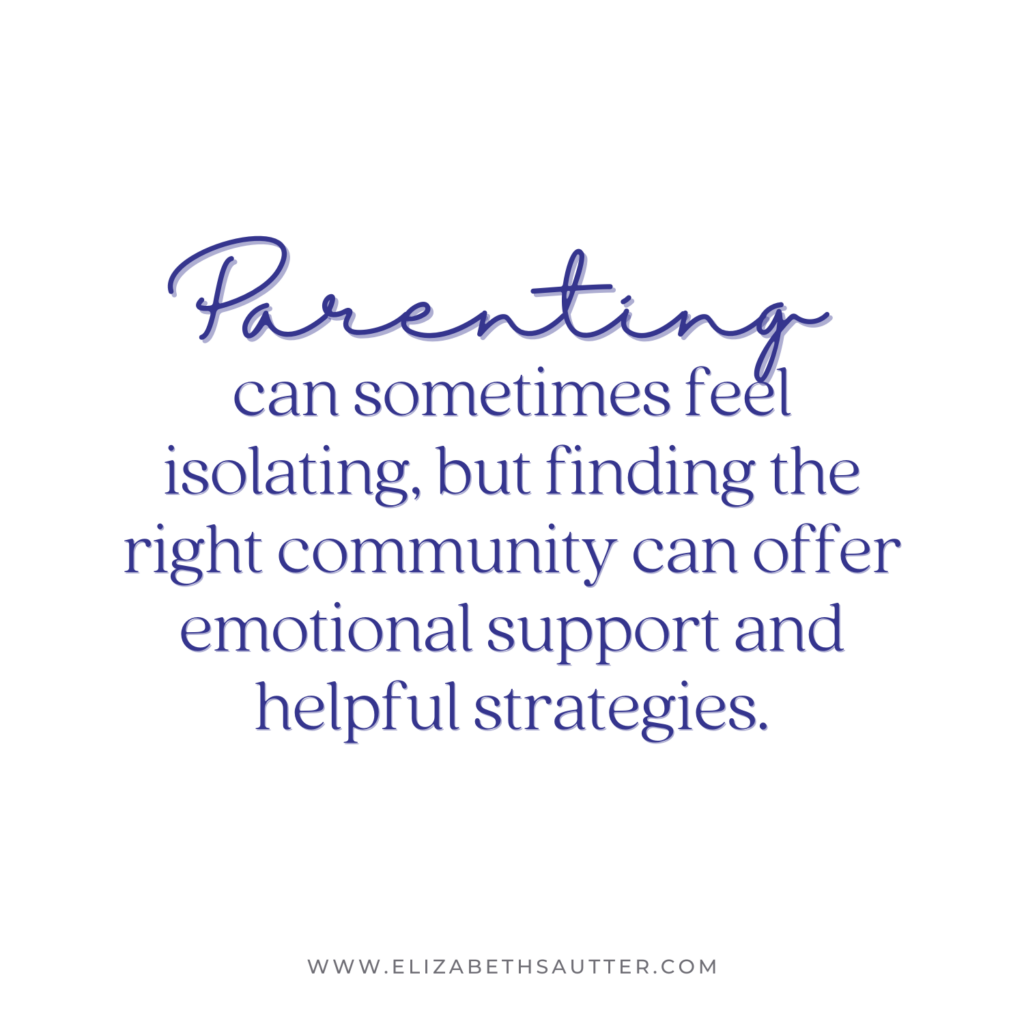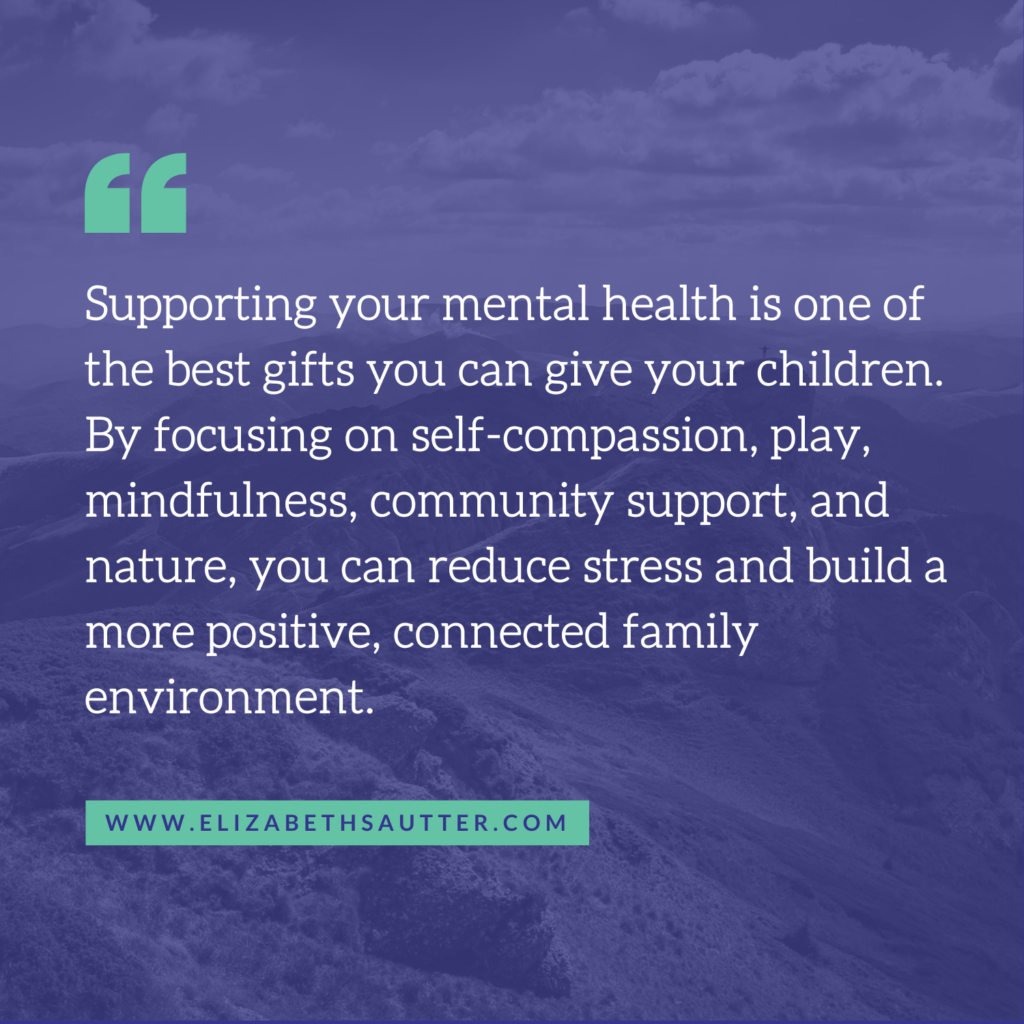The U.S. Surgeon General recently highlighted the importance of parental mental health, emphasizing that taking care of yourself is essential to raising emotionally healthy children. This is especially critical for parents managing the extra stress of raising neurodivergent children.
Prioritizing your own mental well-being not only helps you cope with challenges but also fosters a nurturing environment where your child can thrive.

Tips to Boost Mental Health and Well-Being as a Parent
1. Practice Self-Compassion
Being a parent can be incredibly rewarding but also overwhelming. Sometimes, we are our harshest critics. Practicing self-compassion is about showing yourself the same kindness you would offer a friend. Drawing on the work of Kristin Neff, self-compassion involves three steps:
- Mindfulness: Acknowledge your feelings of stress or overwhelm without judgment.
- Common Humanity: Remember that you’re not alone—many parents experience these same struggles.
- Self-Kindness: Instead of being overly critical, offer yourself comforting words and understanding.
2. Self Care: This is different from self compassion. It’s the things we do to fill our own cup because as the saying goes, you can’t pour from an empty cup! Notice the things that help you feel more relaxed, energized and filled up.
Prioritizing your emotional health not only benefits you but also equips you to support your child from a place of calm and clarity. It’s not a “nice to have”, it’s a NEED TO HAVE!
3. Connection Through Play
Play is one of the most powerful ways to strengthen your bond with your child and boost your own well-being. By focusing on moments of joy and laughter, you can create positive emotional experiences together. Simple activities like having a dance party, playing board games, or engaging in humor can lighten the mood and deepen your connection. Laughter and play release endorphins, making everyone feel good, while also helping you stay present in the moment.

4. Mindfulness Practices
Mindfulness doesn’t have to be complex. Incorporating a few simple techniques can make a big difference in managing stress:
- Walking Mindfully: Take a walk, even if it’s just around your home or yard, and pay attention to each step and the sensations in your body.
- Listening to Music: Choose calming music and focus on how the sounds make you feel, allowing the rhythm to bring you into the present moment.
- Breathing Techniques: Practice deep breathing by inhaling for four counts, holding for four, and exhaling for four. This regulates your nervous system and reduces stress.
These activities help ground you, reduce anxiety, and improve your ability to cope with daily parenting challenges.
5. Get Community Support
Parenting can sometimes feel isolating, but finding the right community can offer emotional support and helpful strategies. I highly recommend Generation Mindful with Suzanne Tucker, which focuses on positive discipline and emotional regulation, and Coping Skills for Kids with Janine Halloran, which provides practical resources for building emotional resilience. Being part of a supportive community where parents share experiences can help you feel less alone and more empowered.

6. Get a Dose of Nature
Nature has a calming/grounding effect on our minds and bodies. If possible, spend time outdoors, even for a few minutes—take a walk, sit in the yard, or just look up at the sky. If you can’t physically go outside, try opening a window, breathing in fresh air, or placing your feet on the ground to feel connected to the earth. Even small moments with nature can help lower stress and bring a sense of peace.
Free Resource: A Step Towards Your Family’s Well-being
To support you further, download this free guide on managing big emotions. It includes simple, effective strategies to help you and your child regulate emotions throughout the day. You’ll receive the Coping Skills for Teens Journal by Janine Halloran, offering a creative outlet for teens to manage anxiety and build resilience through guided prompts, and the Positive Patterns Family Coloring Book, designed for all ages to reduce anxiety using mindfulness and gratitude practices. Together, these resources will help you and your child connect, unwind through creativity, and de-escalate stress. Get the Freebie Here and start building stronger emotional connections today.
Final Thoughts
Supporting your mental health is one of the best gifts you can give your children. By focusing on self-compassion, play, mindfulness, community support, and nature, you can reduce stress and build a more positive, connected family environment.

Interested in Learning More?
Join Janine Halloran, LMHC and Elizabeth A. Sautter, MA, CCC, for their workshop Navigating Big Emotions: Practical Ways to Help Kids Handle Anxiety and Overwhelm. This interactive workshop will dive deeper into managing anxiety and equip you with more tools to help your child thrive. Learn More and Register Here!
 Join the Upcoming Workshop –
Join the Upcoming Workshop – 
